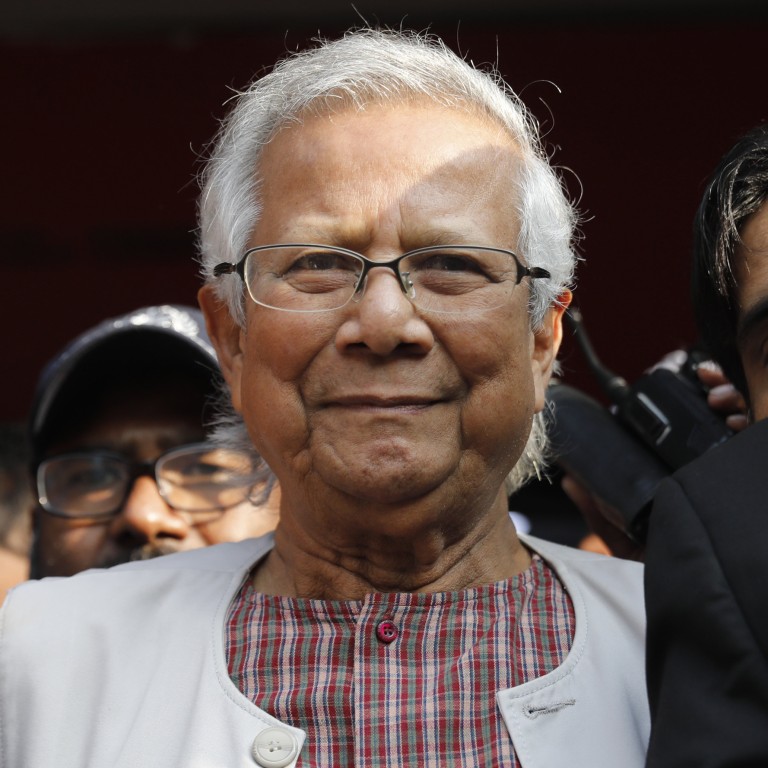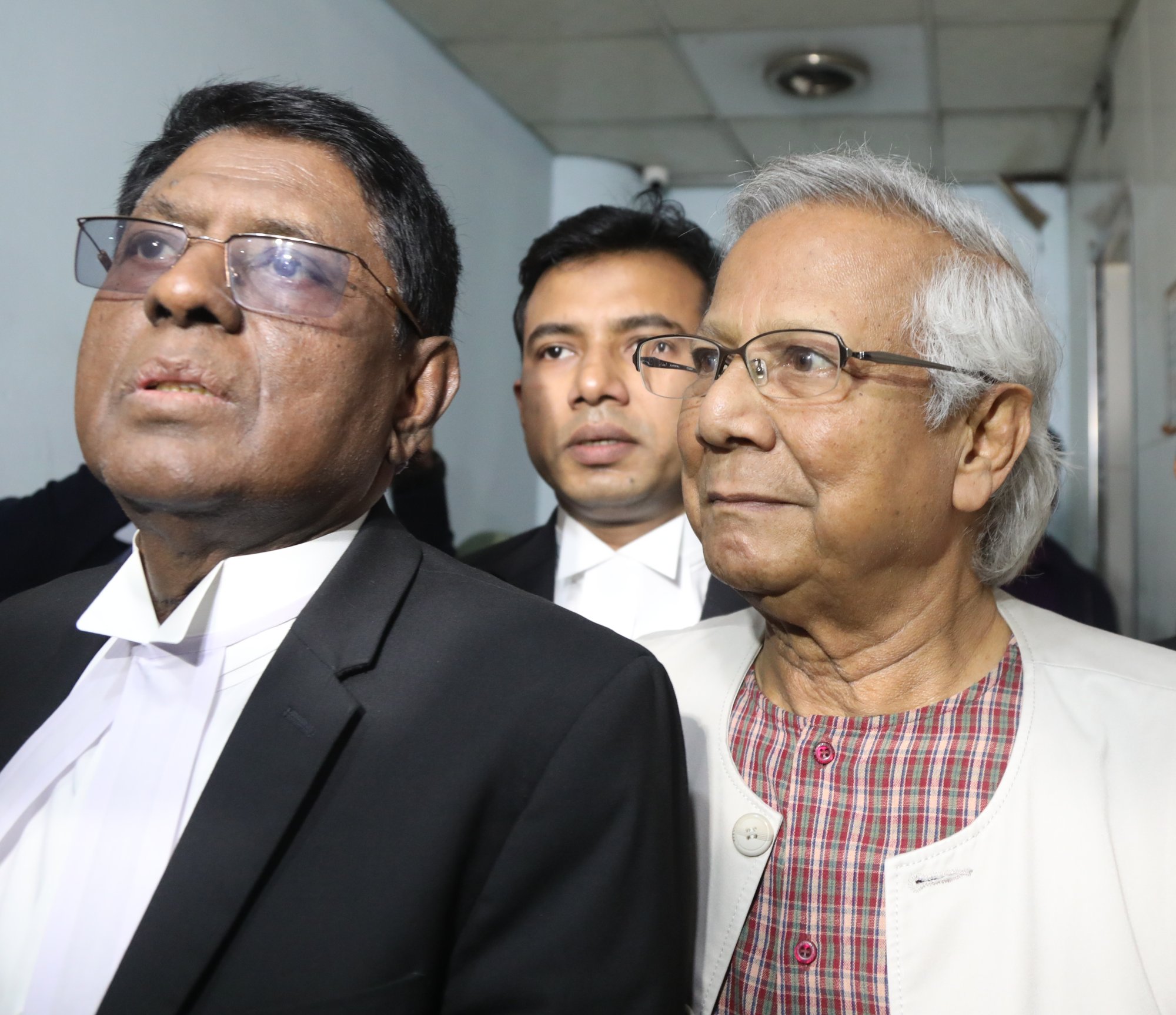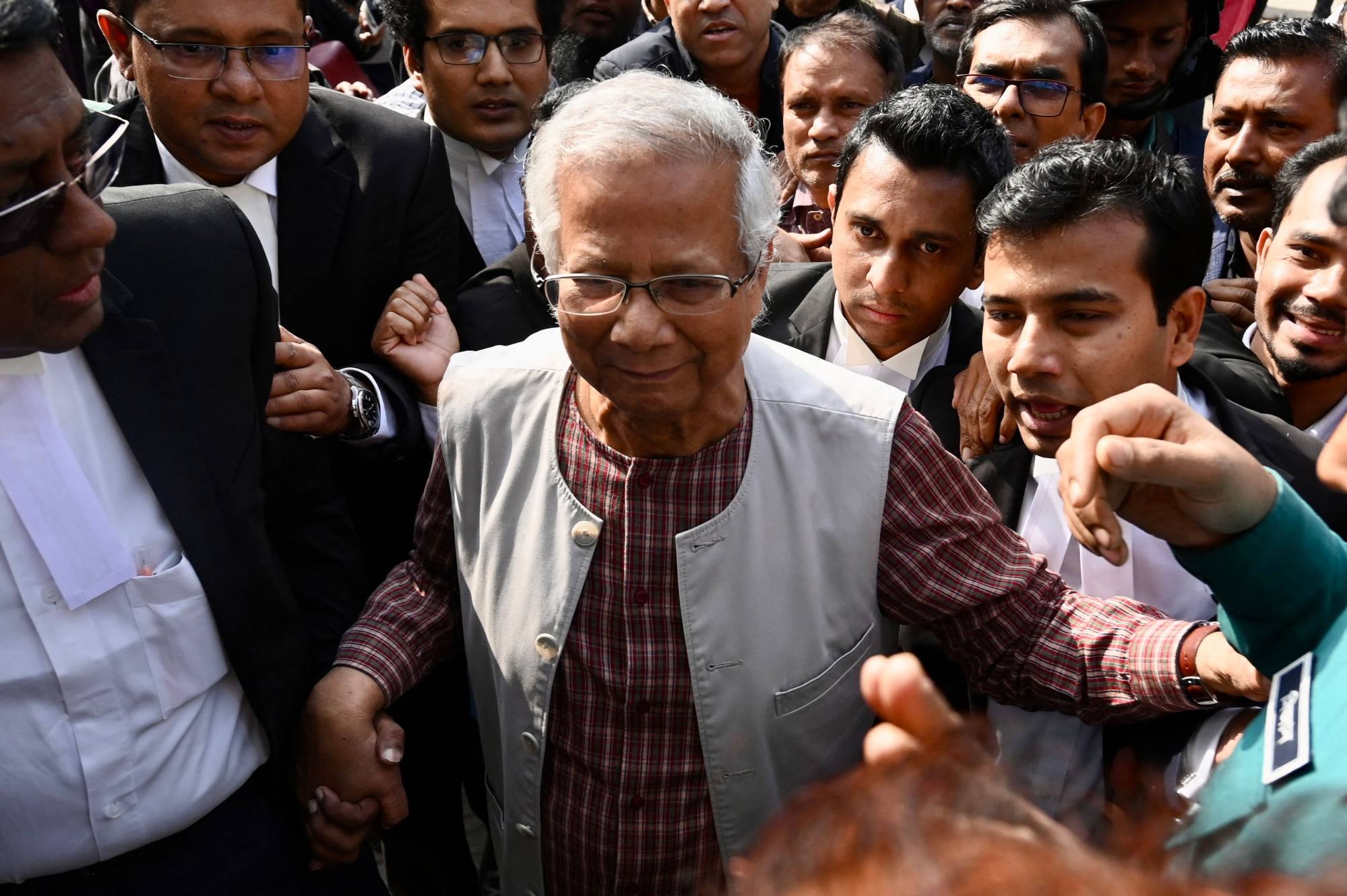
Bangladesh convicts Nobel peace laureate Yunus of violating labour laws, in ‘meritless’ case decried by his supporters
- Muhammad Yunus, was accused of violating labour laws when he failed to create a workers’ welfare fund in his pioneering microfinance bank
- The 83-year-old is credited with lifting millions out of poverty with his idea, but has been accused of ‘sucking blood’ from the poor, by PM Sheikh Hasina
Nobel peace laureate Muhammad Yunus was convicted on Monday of violating Bangladesh’s labour laws in a case decried by his supporters as politically motivated.
The 83-year-old, known as the “banker to the poorest of the poor”, was awarded the Peace Prize in 2006 for his work loaning small cash sums to rural women, allowing them to invest in farm tools or business equipment and boost their earnings.
Grameen Bank, the microfinance lender he founded, was lauded for helping unleash breakneck economic growth in Bangladesh, and its work has since been copied by scores of developing countries.
“Human beings are not born to suffer the misery of hunger and poverty,” Yunus said during his Nobel lecture, daring his audience to imagine a world where deprivation was confined to history museums.

But his public profile in Bangladesh has earned him the hostility of Prime Minister Sheikh Hasina, who once accused him of “sucking blood” from the poor.
Hasina has made several scathing verbal attacks against the internationally respected 2006 Nobel Peace Prize winner, who was once seen as a political rival.
Yunus and three colleagues from Grameen Telecom, one of the firms he founded, were accused of violating labour laws when they failed to create a workers’ welfare fund in the company.
A labour court in the capital Dhaka convicted and sentenced them to “six months’ simple imprisonment”, lead prosecutor Khurshid Alam Khan said, adding that all four were immediately granted bail pending appeals.
This verdict is unprecedented. We did not get justice
All four deny the charges.
“This verdict is unprecedented,” Abdullah Al Mamun, a lawyer for Yunus, said. “We did not get justice.”
Yunus is facing more than 100 other charges over labour law violations and alleged graft.
He told reporters after one of the hearings last month that he had not profited from any of the more than 50 social business firms he had set up in Bangladesh.
“They were not for my personal benefit,” Yunus said.
Another of his lawyers, Khaja Tanvir, said that the case was “meritless, false and ill-motivated”.
‘Banker to the Poor’ Muhammad Yunus offers hope to Hong Kong’s disillusioned young
“The sole aim of the case is to harass and humiliate him in front of the world,” he said.
Irene Khan, a former Amnesty chief now working as a UN special rapporteur who was present at Monday’s verdict, said the conviction was “a travesty of justice”.
“A social activist and Nobel laureate who brought honour and pride to the country is being persecuted on frivolous grounds,” she said.
The year after winning the Nobel Prize, Yunus announced plans to set up his own “Citizen Power” party to end Bangladesh’s confrontational political culture, which has been punctuated by instability and periods of military rule.
He abandoned those ambitions within months, but the enmity aroused by his challenge to the ruling elite has persisted.
Since Hasina returned to power in 2008, Yunus has been hit with a series of criminal cases and a smear campaign by a state-led Islamic agency that accuses him of promoting homosexuality.

The government unceremoniously forced him out of Grameen Bank in 2011 – a decision fought by Yunus but upheld by Bangladesh’s top court.
In August, 160 global figures, including former US president Barack Obama and ex-UN secretary general Ban Ki-moon, published a joint letter denouncing “continuous judicial harassment” of Yunus.
The signatories, including more than 100 of his fellow Nobel laureates, said they feared for “his safety and freedom”.
Critics accuse Bangladeshi courts of rubber-stamping decisions made by Hasina’s government, which is all but certain to win another term in power next week at elections boycotted by the opposition.
Bangladesh widens tax probe against Nobel Peace Prize winner Muhammad Yunus
Her administration has been increasingly firm in its crackdown on political dissent, and Yunus’s popularity among the Bangladeshi public has for years earmarked him as a potential rival.
Amnesty International accused the government of “weaponising labour laws” when Yunus went to trial in September and called for an immediate end to his “harassment”.
Criminal proceedings against Yunus were “a form of political retaliation for his work and dissent”, it said.

.png?itok=arIb17P0)